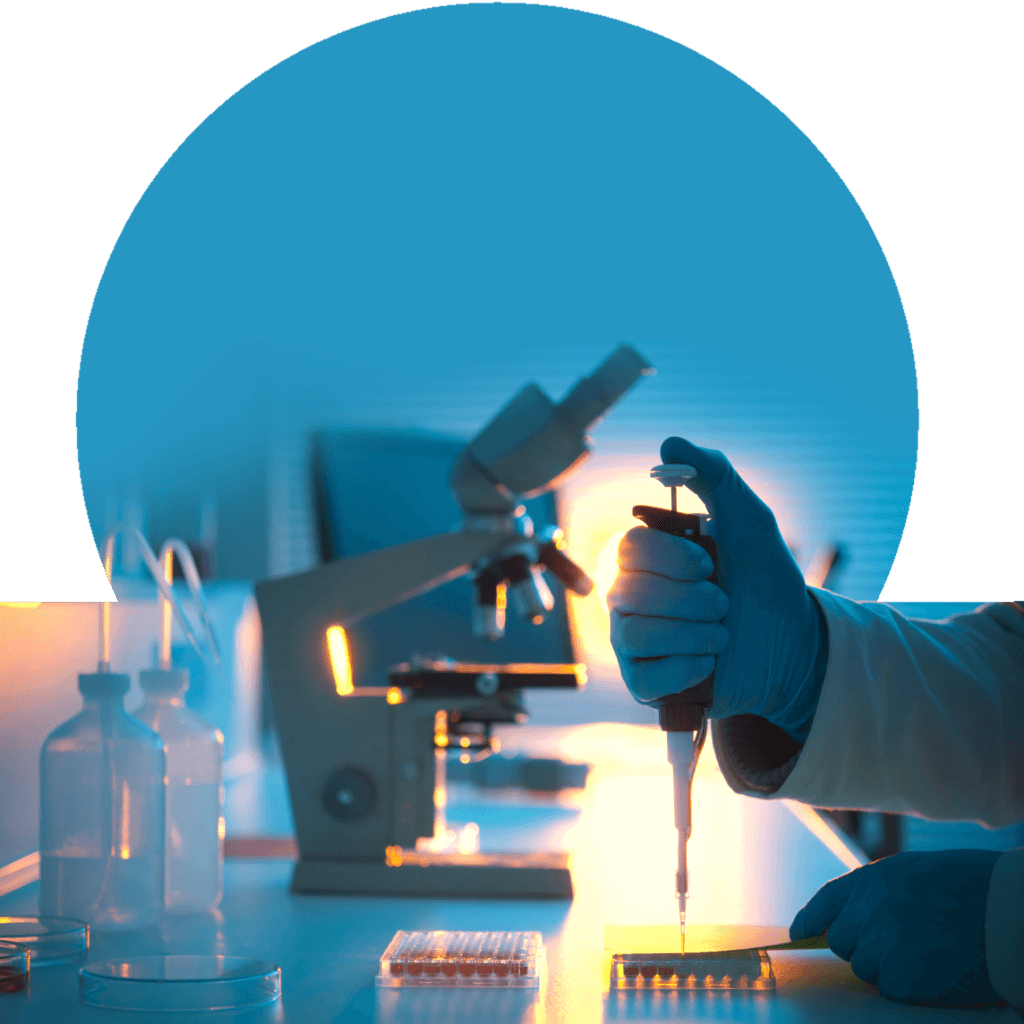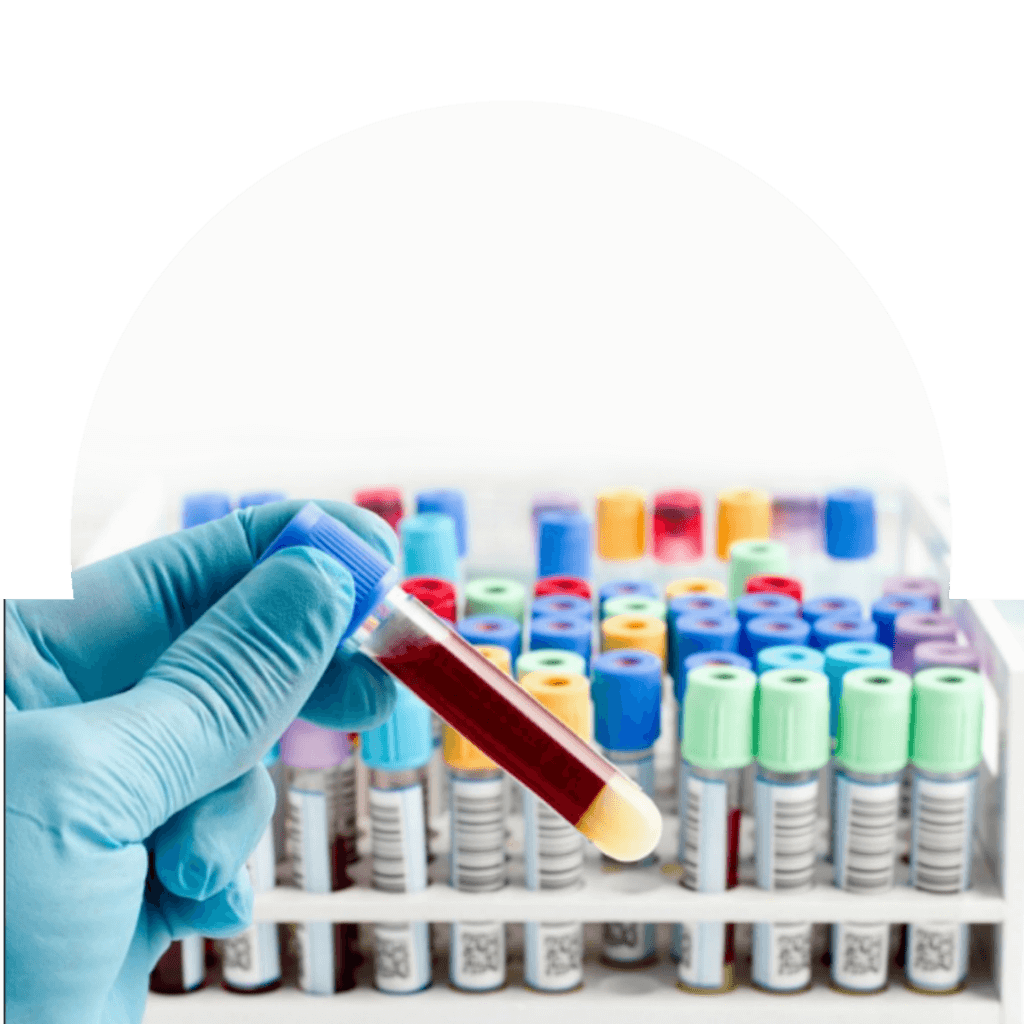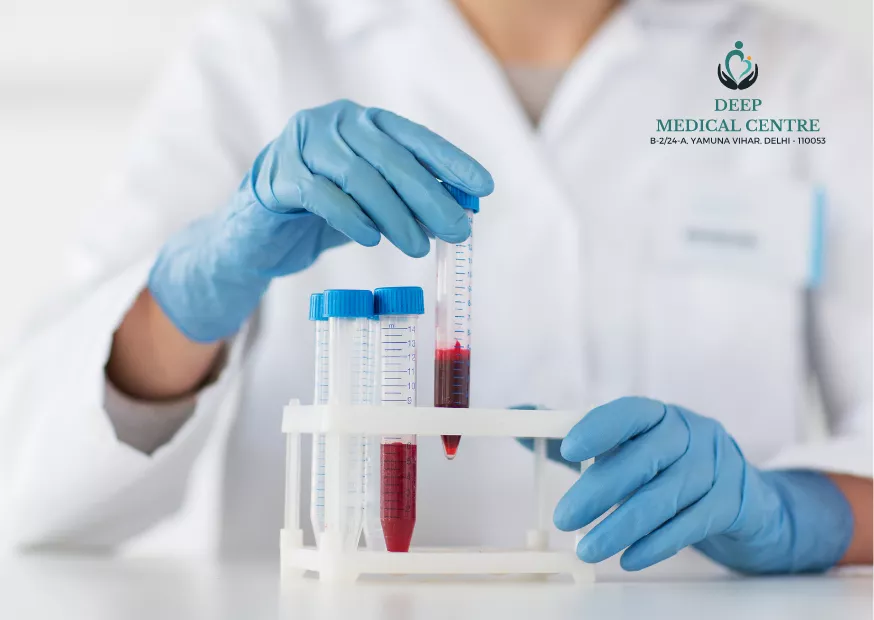
Book Your
Laboratory Test (Blood Tests and Pathology Tests)
Make Your Appointment
Opening Hours
Open Everyday From
08:30 AM – 10:00 PM
08:30 AM – 10:00 PM
Deep Medical Centre Main Branch , B – 2/24 A Yamuna Vihar Road Near Bhajanpura Petrol Pump, Delhi 110053
overview
Blood and pathology tests leave many people squeamish, but they’re an important part of detecting, diagnosing and treating disease. In fact, if you’re sick, many decisions about your care will come down to the results of your blood and pathology tests.
Pathology means the study of disease and its causes and progression. Pathology tests cover blood tests, and tests on urine, stools (faeces) and bodily tissues.
A pathologist interprets the results of blood and pathology tests and looks for abnormalities that may point to disease, such as cancer and other chronic illnesses, or health risks, such as pre-diabetes.
Reasons to have a blood or pathology test
Pathology means the study of disease and its causes and progression. Pathology tests cover blood tests, and tests on urine, stools (faeces) and bodily tissues.
A pathologist interprets the results of blood and pathology tests and looks for abnormalities that may point to disease, such as cancer and other chronic illnesses, or health risks, such as pre-diabetes.
Reasons to have a blood or pathology test


Why is Laboratory Test (Blood Tests and Pathology Tests) done?
• Treating disease
• Monitoring disease progression
• Preventing disease (for example, a Pap smear or mammogram may reduce the risk of some common women’s cancers through early detection)
• Determining future risk of disease (for example, looking at cholesterol levels or the risk of inherited conditions such as familial breast cancer)
• Aiding research into new treatments, and safety of treatments and procedures.
If your doctor or specialist sends you for blood and pathology tests, it’s because there’s some concern about your health (or you’re at an age where health risks may be more likely) and a test is an effective way of discovering whether there’s a problem.
• You may be sent for blood and pathology tests to:
• Screen for disease
– screening may pick up a disease in its early stages, sometimes even before you’re aware you have it, or a genetic or inherited disorder
Look for potential health risks
– many risks to your health, such as diabetes, heart disease, or rheumatoid arthritis, can be detected with blood and pathology tests.
Your doctor will look at your health history (such as age, weight, lifestyle and family history of disease) and your test results to assess your health risk
• Diagnose an illness
– if you’re sick, your doctor may need test results to pinpoint the cause, and make an accurate diagnosis and treatment plan
• Give a prognosis
– if you have a disease, blood and pathology tests can help your doctor determine your prognosis (likely health outcome or course of your disease). If you have cancer, your doctor would use tests to work out the stage your disease has reached
• Prepare for treatment
– your doctor may need to take a blood test to determine your blood type before surgery or transfusion, for example
• Monitor your illness or medications
– your doctor will order tests to work out whether your illness is getting better or worse or remaining stable.
• They may also want to assess medication levels in your blood and the effects of some medications on your organs.
• Monitoring disease progression
• Preventing disease (for example, a Pap smear or mammogram may reduce the risk of some common women’s cancers through early detection)
• Determining future risk of disease (for example, looking at cholesterol levels or the risk of inherited conditions such as familial breast cancer)
• Aiding research into new treatments, and safety of treatments and procedures.
If your doctor or specialist sends you for blood and pathology tests, it’s because there’s some concern about your health (or you’re at an age where health risks may be more likely) and a test is an effective way of discovering whether there’s a problem.
• You may be sent for blood and pathology tests to:
• Screen for disease
– screening may pick up a disease in its early stages, sometimes even before you’re aware you have it, or a genetic or inherited disorder
Look for potential health risks
– many risks to your health, such as diabetes, heart disease, or rheumatoid arthritis, can be detected with blood and pathology tests.
Your doctor will look at your health history (such as age, weight, lifestyle and family history of disease) and your test results to assess your health risk
• Diagnose an illness
– if you’re sick, your doctor may need test results to pinpoint the cause, and make an accurate diagnosis and treatment plan
• Give a prognosis
– if you have a disease, blood and pathology tests can help your doctor determine your prognosis (likely health outcome or course of your disease). If you have cancer, your doctor would use tests to work out the stage your disease has reached
• Prepare for treatment
– your doctor may need to take a blood test to determine your blood type before surgery or transfusion, for example
• Monitor your illness or medications
– your doctor will order tests to work out whether your illness is getting better or worse or remaining stable.
• They may also want to assess medication levels in your blood and the effects of some medications on your organs.







